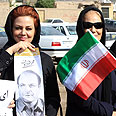
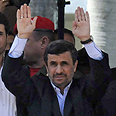
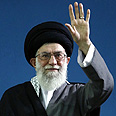
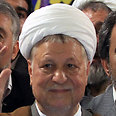
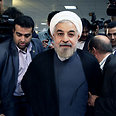
But are these elections democratic? How does Iran's nuclear program depend on the election results? What choices do the Iranians have? Answers and notions follow in this primer for the Iranian elections.
Related stories:
- Report: Afghan Taliban delegation visits Iran
- Kerry says US will not accept nukes in Iran's hands
- US: Iran's backing of terrorism sees 'resurgence'
Does the election matter?
Yes, but not in the ways many people think. Iran's president does not set the country's major policies such as the nuclear program, relations with the West, or military projects. All this falls under the ruling clerics headed by Supreme Leader Ayatollah Ali Khamenei. The president acts as the main emissary for the theocracy's positions.
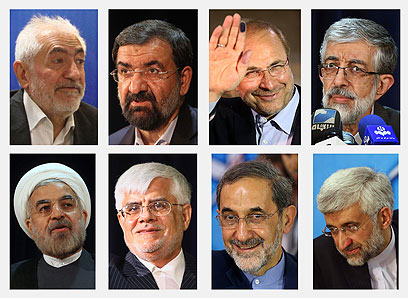
But the president is far from powerless. The post oversees important sectors such as the economy, which needs even greater management as Iran tried to ride out increasingly tighter sanctions over Tehran's nuclear program.
The president also has the ear of Khamenei and can help shape strategic policies. Much depends on their relationship. Khamenei and Ahmadinejad had a spectacular falling out, but a president in Khamenei's good graces could have a significant voice in Iranian affairs.
Will the outcome affect iran's nuclear program?
It won't have a direct effect. The president cannot make any critical changes or concessions. Indirectly, though, the election can have some influence.
Two main theories have been raised. One is that the election could end the internal political bickering of the Ahmadinejad era. This could make the ruling clerics more comfortable in making deals with the West. A second, opposing, prediction is that a seamless front between the ruling clerics and the new president could embolden Iran to take an even more hard-line approach.
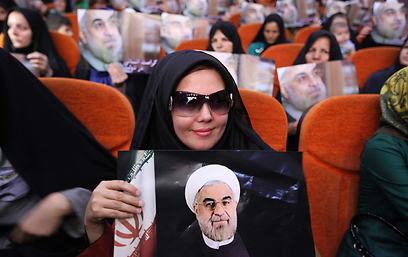
Suppoters of Rohani (Photo: AP)
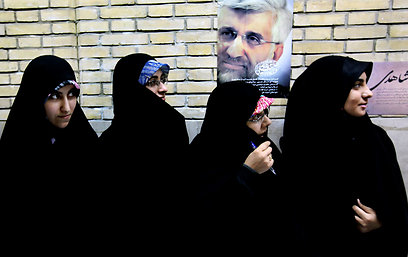
Jalili suppporters (Photo: AP)
The West and its allies fear Iran could be moving toward an atomic weapon. Iran says it only seeks nuclear reactors and technology for energy and medical application. Iran often cites Khamenei's religious edict, or fatwa, denouncing nuclear arms.
How does the election process work?
It's a step-by-step process that is tightly controlled by the ruling clerics.
Candidates first registered with the Interior Ministry. It's essentially an open invitation. Almost anyone can toss in their name.
This year, more than 680 did. They ranged from prominent figures such as Former President Akbar Hashemi Rafsanjani — trying to make a comeback after leaving office in 1997 — to obscure clerics and nonstarters such as Razieh Omidvar, a 46-year-old housewife. Iran's constitution refers to the president using a male term, which is interpreted as prohibiting women from serving.
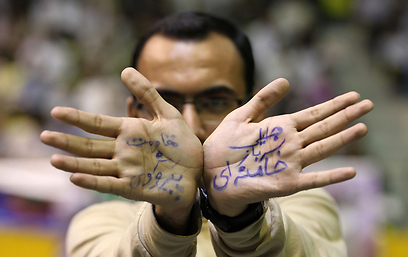
"Saeed Jalili is Khaminei's soldier" (Photo: AFP)
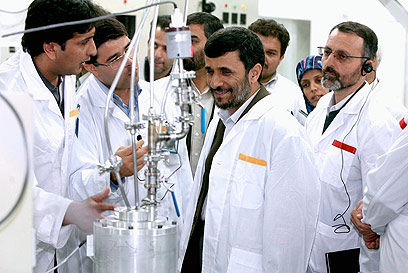
Ahmadinejad in Natanz (Photo: EPA)
Eight candidates were cleared for the ballot by the Guardian Council, a 12-member panel that vets candidates for president and parliament based on factors including loyalty to the Islamic system. Surprisingly, Rafsanjani was blocked, suggesting the ruling system was worried about his clout and ability to galvanize reformists.
Who can vote?
There are more than 50 million eligible voters in a population of about 76 million. About a third of the voters are under 30 — born after the 1979 Islamic Revolution. Minimum voting age is 18, raised from 16 in 2007. Iranians abroad can vote in diplomatic compounds and other polling sites.
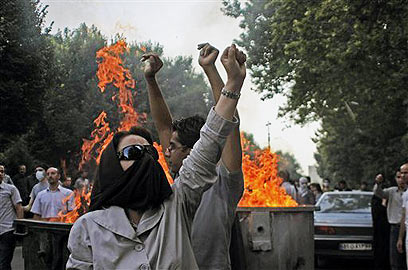
2008 protests (Photo: AP)
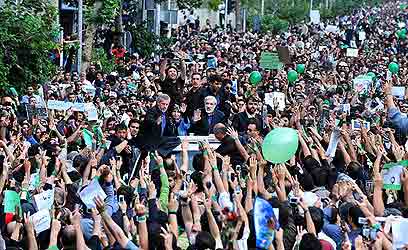
In house arrest since 2011. Mousaviin 2008 demo (Photo: Hamed Saver)
Is it fair?
The main criticism by the West is over the candidate vetting process. Also, the question of whether the final vote is accurate brings divided opinions. Allegations of ballot rigging were at the center of mass protests and riots in 2009 after Ahmadinejad's disputed re-election. Supporters of the Islamic system insist the voting is fair and transparent, although Iran does not allow outside election observers.
What choices do iranians have this time?
The rejection of Rafsanjani appeared to undercut momentum for reformists and liberals to regroup after years of crackdowns and pressures.
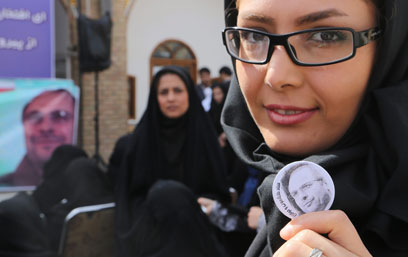
Supporter of Tehran Mayor Qalibaf (Photo: EPA)
Of the eight candidates, six are considered closely allied with the ruling clerics. They include a former foreign minister, Ali Akbar Velayati, Tehran Mayor Mohammad Bagher Qalibaf and Iran's top nuclear negotiator, Saeed Jalili. The two more moderate-leaning candidates have not gained the same following as Rafsanjani. They are former nuclear negotiator Hasan Rowhani and Mohammad Reza Aref, vice president under former reformist President Mohammad Khatami.
Are there risks of post-election unrest as in 2009?
Iran's opposition movement has been effectively dismantled by years of crackdowns and detentions, including placing Mousavi and fellow presidential candidate Mahdi Karroubi under house arrest in early 2011.
There appears to be little spirit for street demonstrations among even the strong dissident factions in Iran, knowing that they will face swift and harsh retaliation from the government. In a pre-emptive move, Iranian authorities have tightened controls on the Internet, which was used as a main coordination tool during the 2009 protests.
- Receive Ynetnews updates
directly to your desktop















